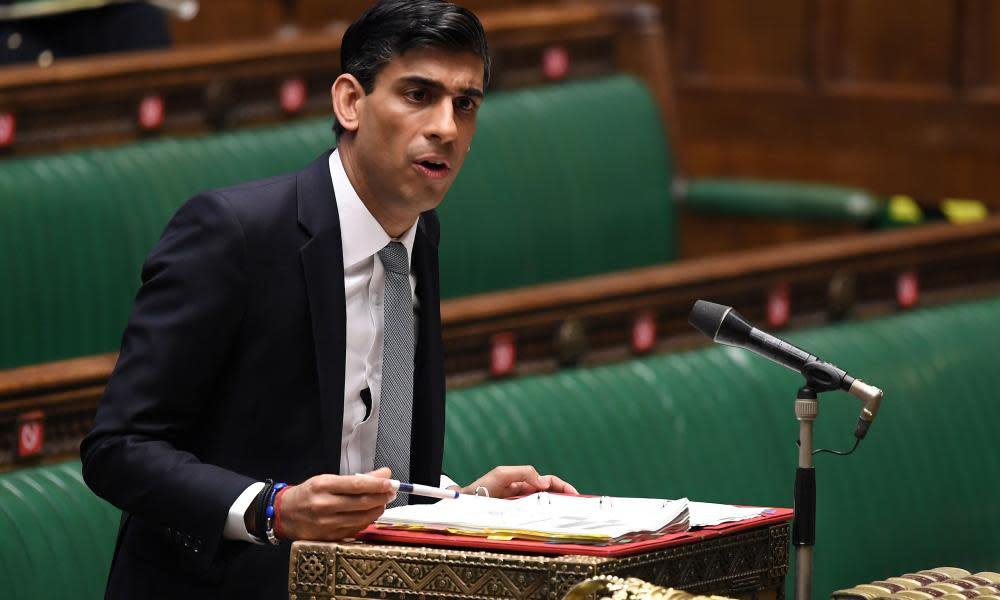Rishi Sunak is borrowing his way out of this crisis, but we'll all have to pay it back

Within days of Rishi Sunak becoming chancellor of the exchequer, the UK plunged into the deepest recession for at least 300 years. In extraordinarily difficult circumstances, the chancellor has demonstrated boldness, imagination, grip and excellent communication skills. He has outshone his cabinet colleagues in general and the prime minister in particular.
The chancellor, however, will be aware that his most testing times are still to come. He has rightly focused on protecting the economy from the short-term consequences of Covid-19 and our response to it. But as he rightly said on Wednesday, in the medium term the public finances need to be put on a sound footing. By the autumn, he will need to tell us how he is going to do it.
Much of the focus so far has been on the short-term implications for government borrowing. Rather than borrowing £55bn in 2020/21 as the Office for Budget Responsibility had predicted pre-Covid, we are probably heading towards an annual deficit of £350bn. For the first time since the early 1960s, the size of government debt will exceed the size of the UK economy.
The government is likely to be relatively relaxed about the immediate surge in borrowing. It is able to get its debt away easily enough (in large part because of the actions of the Bank of England) and debt servicing costs remain low. But once we are through the immediate crisis, continued high levels of borrowing runs the risk of losing the confidence of the markets. If that happens, sterling will fall, debt servicing costs will rise and the country will face even more painful choices.
A £40bn tax rise would mean an increase of 7p on the basic rate of income tax or raising the standard rate of VAT by 6%
How much will need to be done to stabilise the public finances? It is hard to say with confidence at this point given that it will depend on how quickly we recover from the current crisis and the level of scarring in the economy. But, as Carl Emmerson of the Institute for Fiscal Studies has said, an estimate of a gap of £35-40bn looks reasonable, even before taking into account demands for higher public spending that will be very hard to resist.
Once we are through the economic shock caused by Covid-19, the government will have to fill this gap with tax increases or spending cuts. Unlike the situation in 2010, it is hard to see that there are substantial savings to be made in government spending. The one obvious exception is the pension triple lock – if wages are stagnant (or even falling) and inflation is negligible, it would be an act of intergenerational unfairness to increase the state pension by 2.5%.
But it is clear that tax increases will have to do most of the heavy lifting. To give an indication of the scale of the undertaking, a £40bn tax rise would be the equivalent of an increase of 7p on the basic rate of income tax or raising the standard rate of VAT by 6%.
Related: Tory praise for summer statement comes with concerns over finances
The political challenge in raising tax by the necessary amount will be immense. Any plan will need to be seen as being fair – those with the broadest shoulders will have to bear the greatest burden – but must not undermine our attractiveness as a location for investment and wealth-creating individuals. It is also not yet clear that the Conservative party as a whole is reconciled to the reality that sound public finances will require higher taxes.
The time to implement these higher taxes may some while off. Nonetheless, to reassure the markets of his fiscal credibility and to provide some certainty to businesses as to the tax environment, Mr Sunak will need to set out his tax-raising strategy at the autumn budget. It will be an even tougher test than anything he has faced so far.


